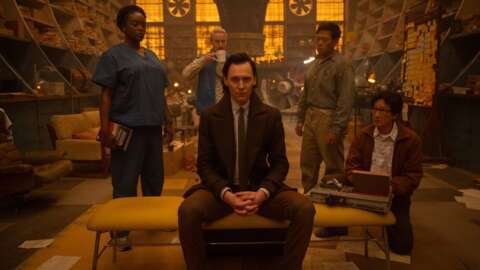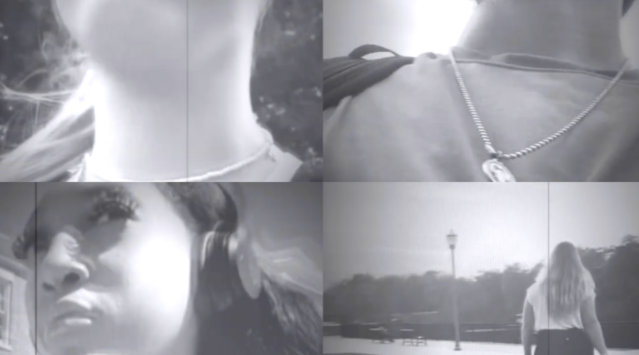There’s something undeniably familiar in this week’s episode of “Loki.”
After the climactic and expectation-shattering close to last week’s “The Heart of the TVA,” Episode 5 dives without hesitation into the aftermath. No punches are pulled when it comes to the bizarre ramifications of the Time Variance Authority’s continuous collapse. The central characters outside of Loki have been returned to their previous lives on their respective timelines and have lost memory of their time at the TVA and the turmoil at hand.
These lives are rooted in the personality of the characters as we know them: Mobius, now “Don,” sells Jet Skis, and Ouroboros, now “A.D.,” is a genius science-fiction writer. They are also idiosyncratic and playful: Casey is revealed to be “Frank,” a real-life convict who escaped from Alcatraz in the early 1960s. It’s a comedic story point reminiscent of Loki being revealed as D.B. Cooper in Season 1.
For much of the run time, the tone is a bit more relaxed. The stakes are still as high as ever, but the pace and urgency are less breakneck than the most recent episodes. For a while, the “eye of the storm” dynamic that seemed imminent after last week and that is present in most Marvel penultimate episodes is adhered to steadfastly.
What’s perhaps most unique about “Science/Fiction” is that this dynamic doesn’t hold. The quest of “getting the band back together,” as A.D. describes it, goes well, and as the end of the episode approaches, we seem primed for an innocuous close to lead into a loaded finale. This fullness comes early, however. After Sylvie, convincing Loki that his quest to return his friends to the TVA from their timelines is a selfish attempt to avoid being alone, refuses to rejoin the crew and Loki resigns to the futility of the journey, timelines begin collapsing. After another tantalizing final few minutes to an episode, Loki is left with the responsibility of traversing time to save these timelines from imploding and fading out of existence.
On paper, Episode 5 is as thrilling as every other installment of Season 2, and in execution, it still maintains a high level of engagement. Unfortunately, there are a couple of small but noticeable elements that dull its luster.
Firstly, Sylvie convincing Loki of the supposed self-serving nature of his quest to save the space-time continuum is a tad off-putting. Prior to their encounter, Loki is rigidly convinced of the direness of the situation at hand — a conviction that, given all that’s taken place, is completely valid. The fact that he can be talked out of it is unexpected and almost contradictory to his character. It is emotional fodder for the sake of keeping the traditional “hero down bad before ending” story structure.
Second is the collapsing of the timelines. In terms of significance, the viewer can feel the weight of the collapses; the portrayal, however, is intriguing. Each timeline implosion is done in an eerie, quieter manner, with people and objects fading out of existence as those who remain watch in shock and awe.
This is the aforementioned familiarity, relating, of course, to “Avengers: Infinity War” and its rattling twist ending. The first time the timeline collapses, it feels like a subtle invocation of the shock of “Infinity War”; when it’s repeated, it feels like an overwrought callback that leads the viewer to think more about the similarity than about the actual events taking place.
Fortunately, these are somewhat narrow complaints; don’t let critical rhetoric paint the episode as an overall negative. “Science/Fiction,” while not bulletproof, provides a less urgent yet still appealing space for viewers to take a breath before Episode 6. The performances remain strong, and the tone, outside of the dubious final few minutes, continues to blend seriousness with humor. It is a satisfying setup for the finale.
Thursday shall decide whether Season 2 can stick the landing.









